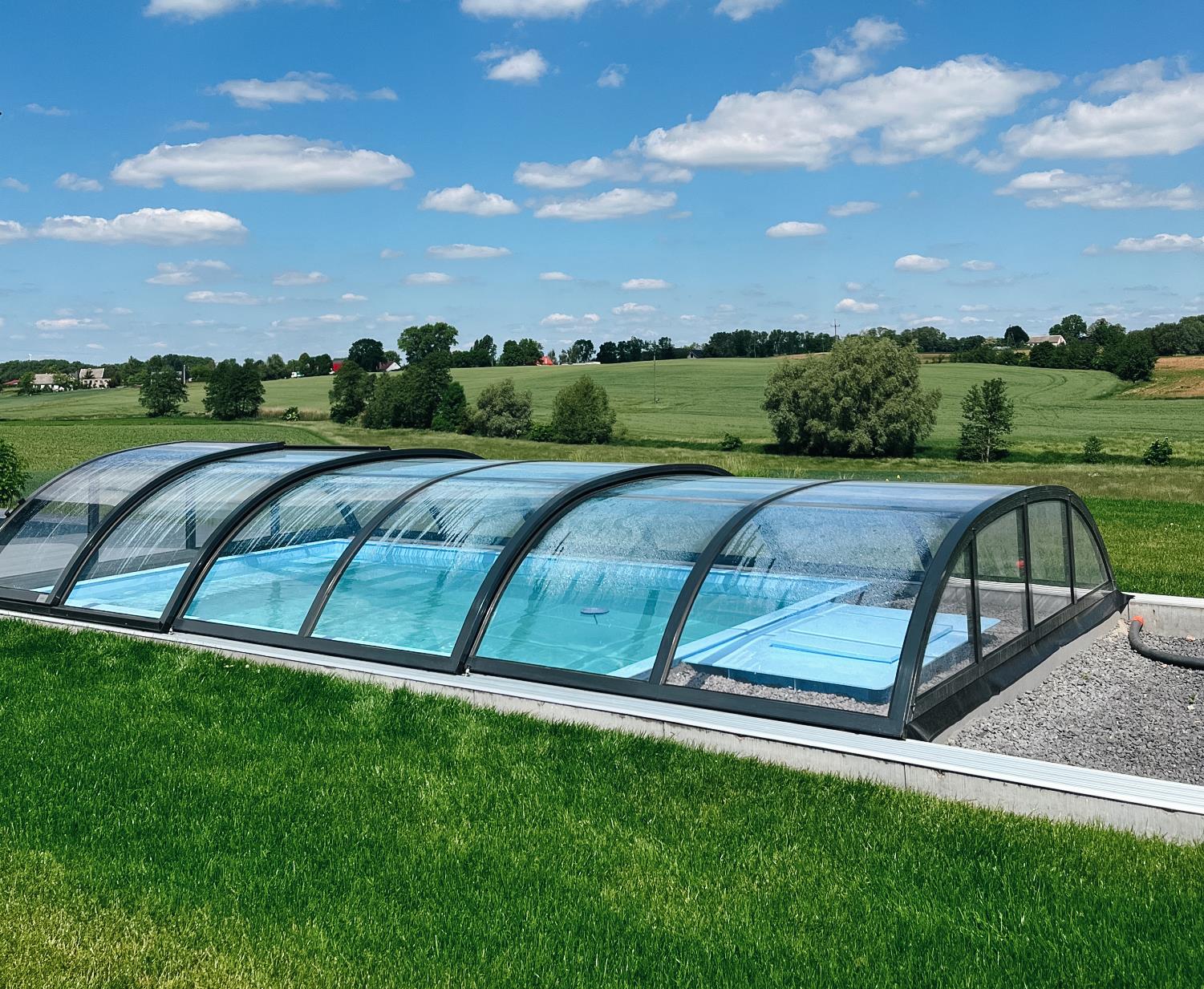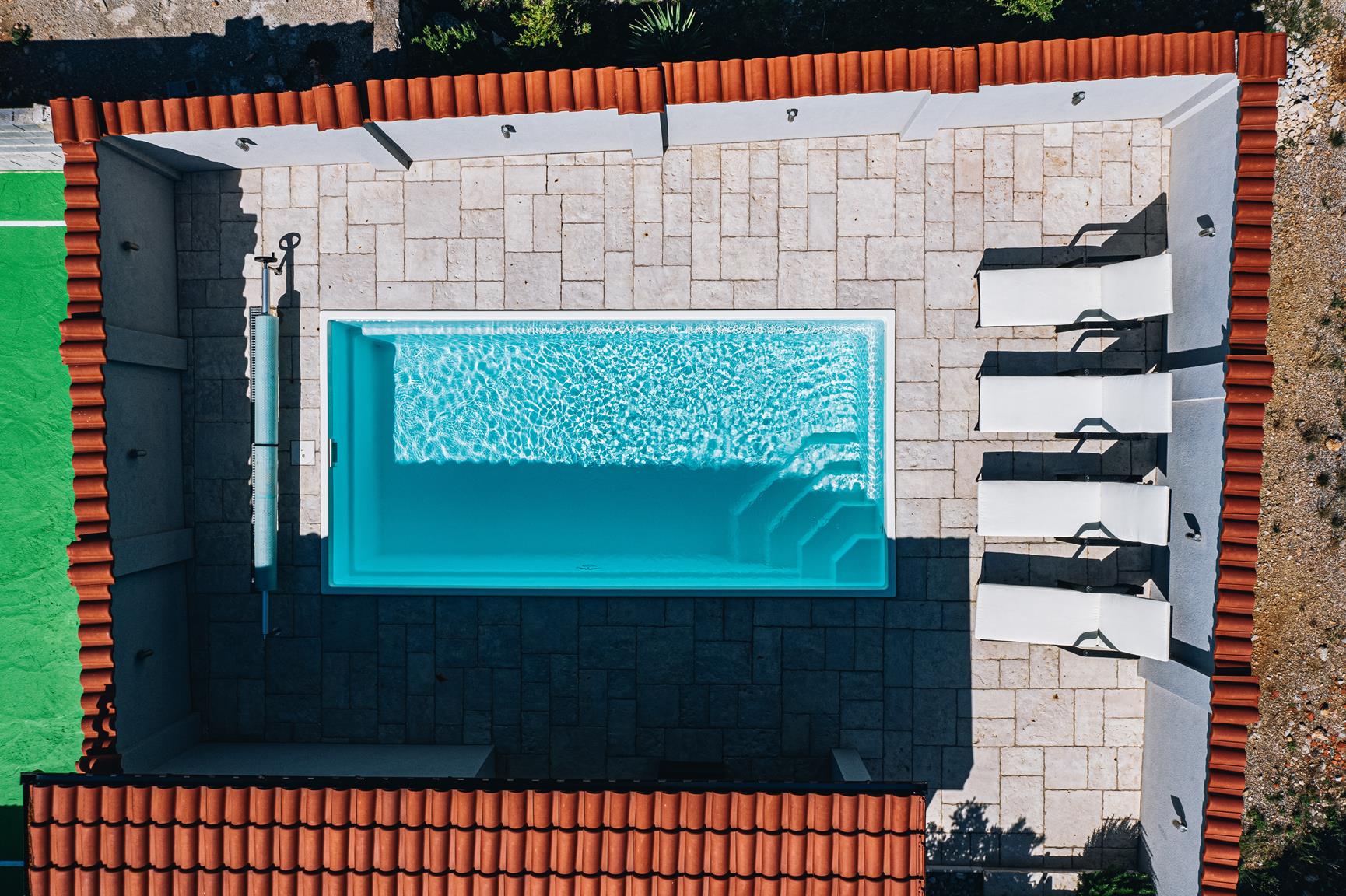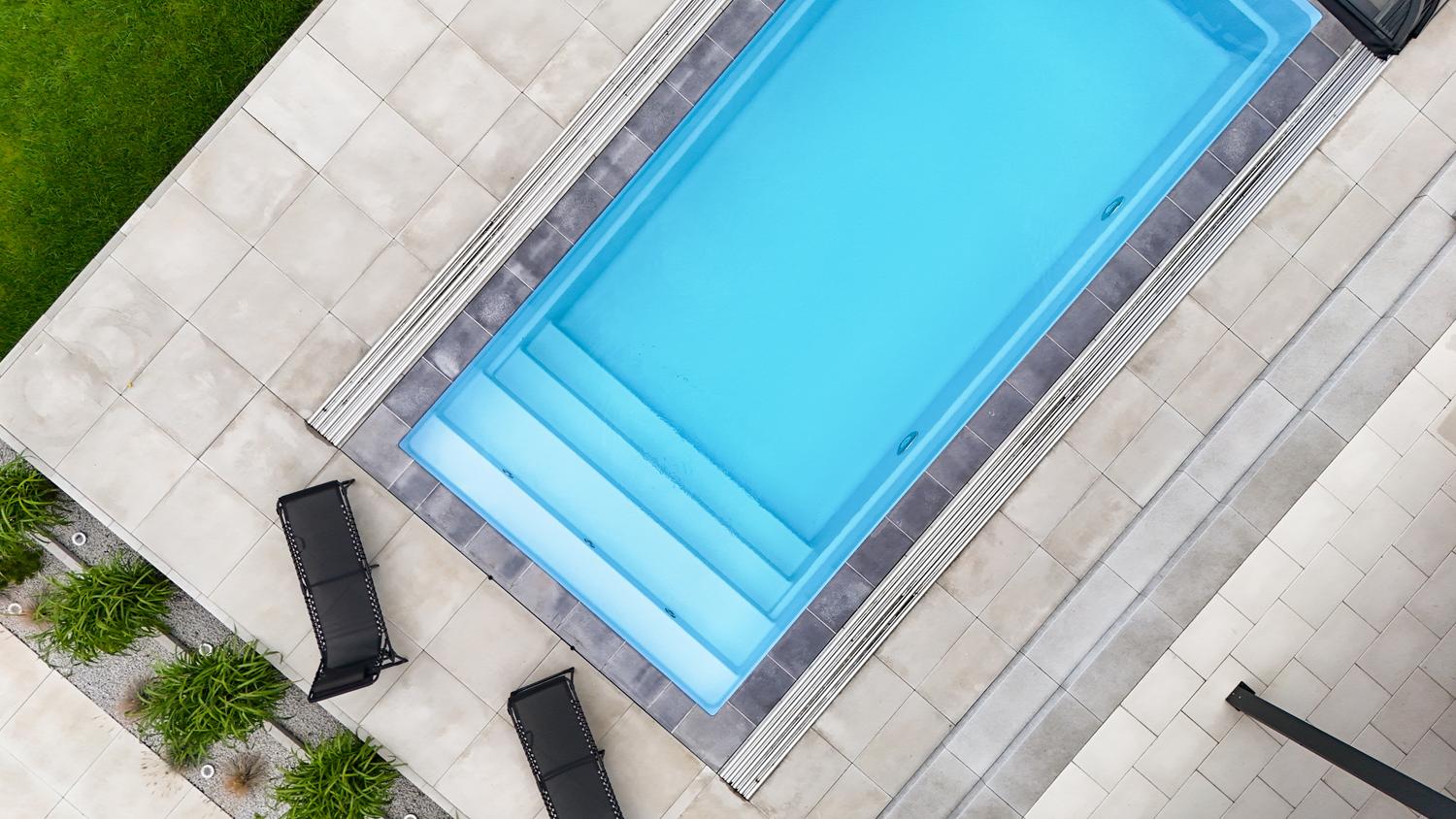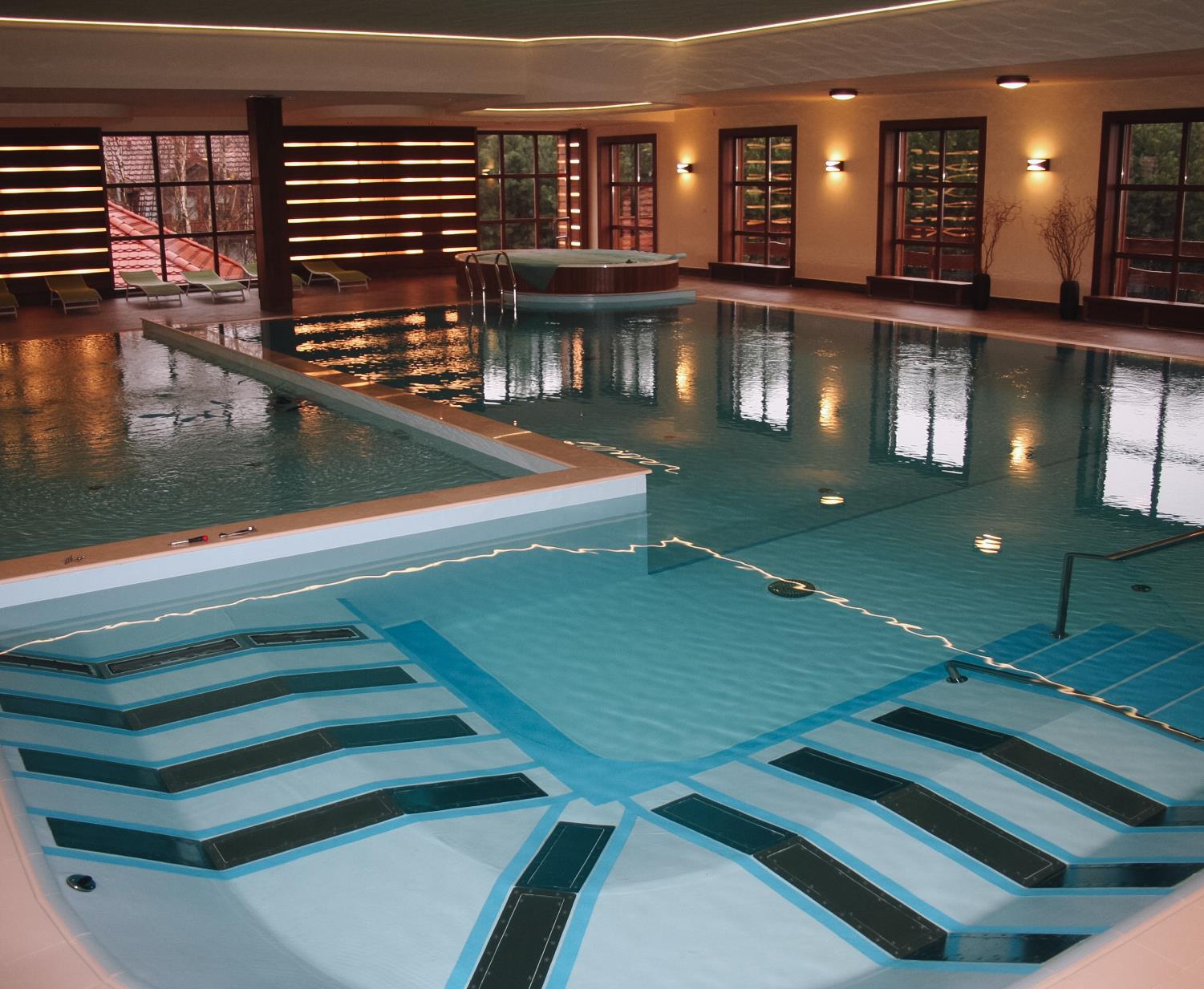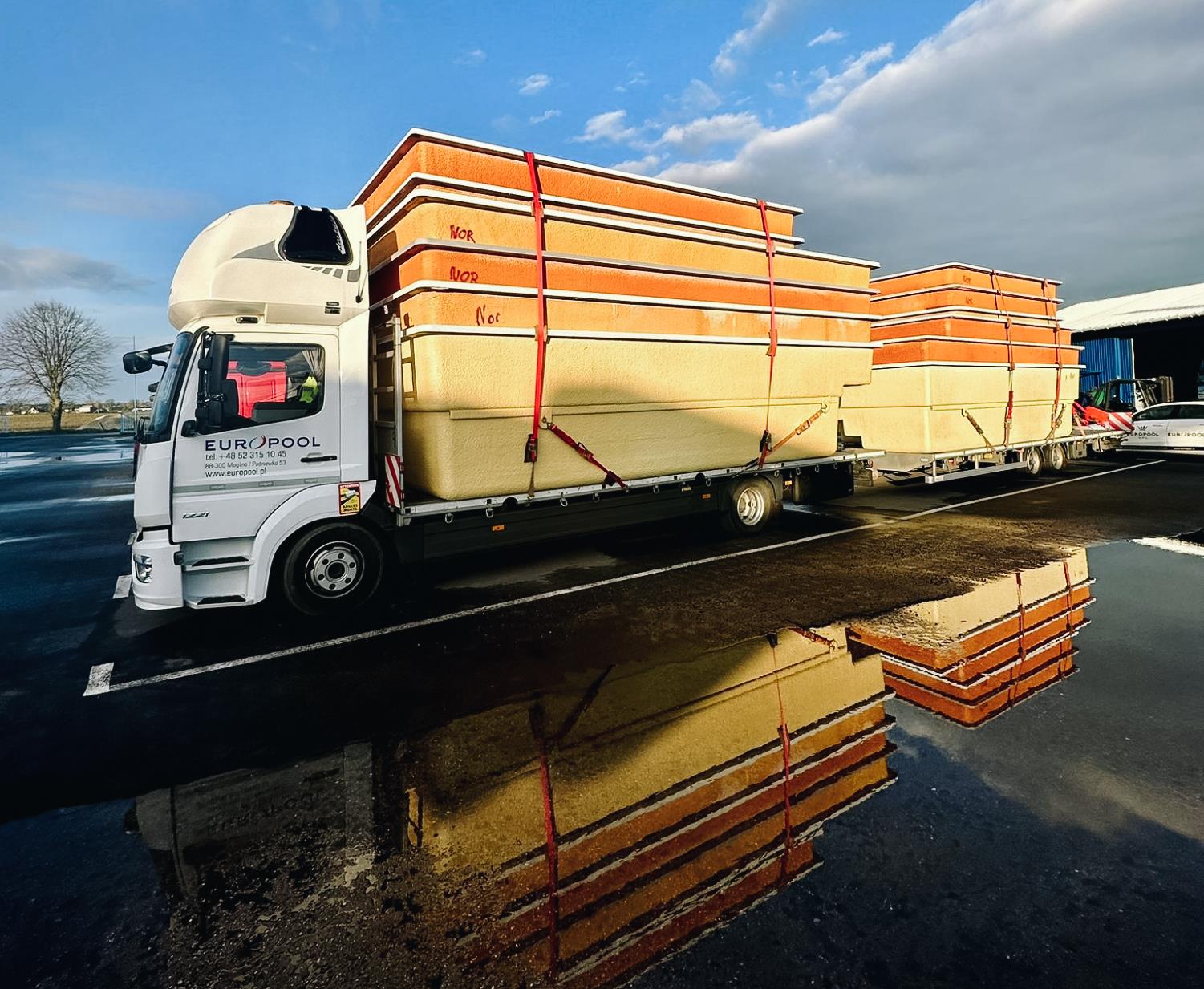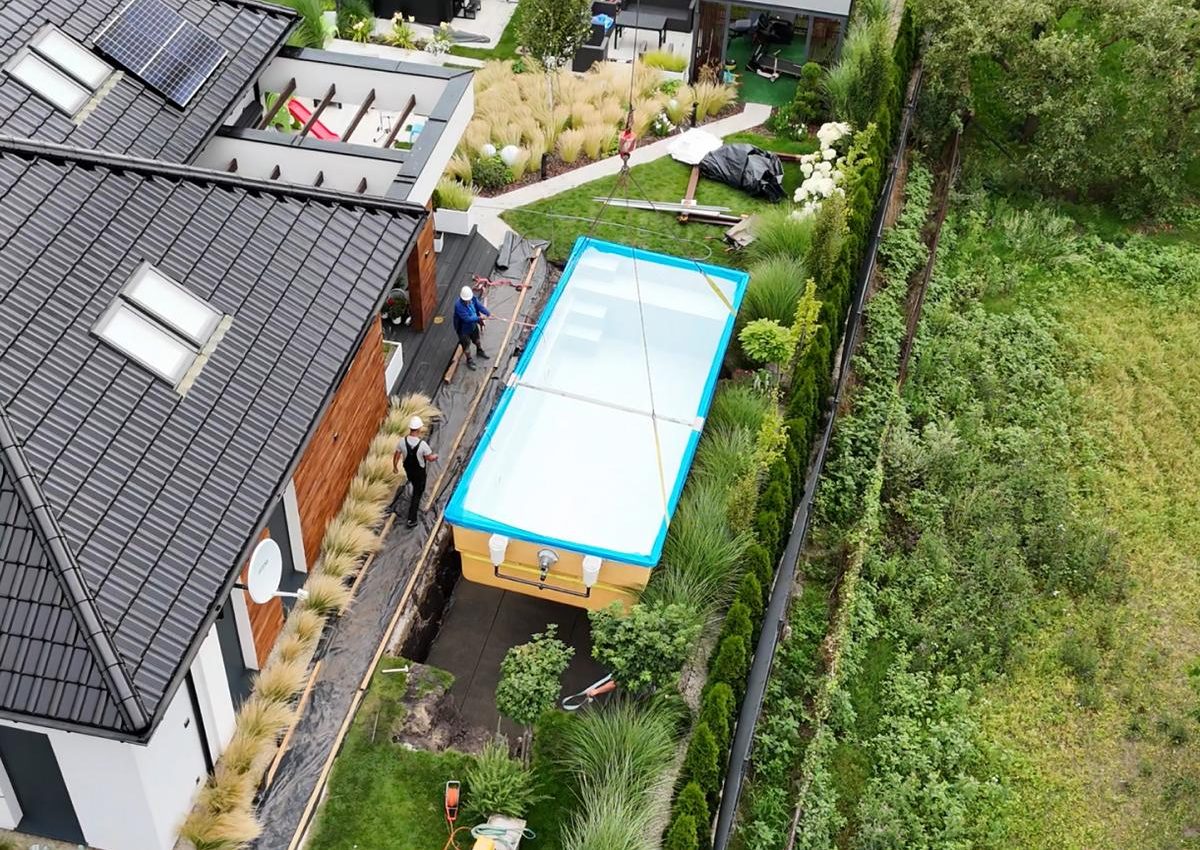
What to look for when choosing a pool installation company?
Choose a pool installation company based on technical expertise, transparent pricing, warranty service, and documented past projects — these are the factors that ensure your investment won’t turn into a headache.
The difference between a professional installation and amateur work only becomes obvious after the first season: leaks, uneven settling, plumbing issues, or lack of after-sales support are the most common consequences of a poor choice. The cost of repairs often exceeds the savings made by going for the cheapest offer.
Completed projects — photos from different stages of construction (excavation, shell placement, connections, finishing).
Pool types — does the company install both polyester and polypropylene pools? Do they have experience with unusual locations (slopes, small plots)?
References — contacts for past clients, reviews after a longer usage period (at least 1–2 years post-installation).
You can ask the contractor if they have completed projects in your area. This is a great opportunity to visit previous clients with them, assess build quality, and discuss comfort after installation.
How is it possible that one company quotes you €15,000 for a pool, while another advertises the same pool for €4,500?! Look closely at the details. Often, such offers only include the pool shell — without filtration, equipment, transport, or installation. Therefore:
Look for a complete itemized estimate: shell, plumbing, pool accessories, covers, transport, installation, drainage, etc.
Beware of a “low price” without details — this often means extra charges for each service.
Ask about additional costs: soil reinforcement, drainage, transport in difficult terrain.
Make sure the contractor:
Has their own transport and crane or a reliable subcontractor — reducing the risk of delays;
Possesses tools for precise shell placement and excavation safety;
Employs installation teams trained in plumbing and electrical work (not just ad-hoc subcontractors doing pools in between other garden jobs).
It goes without saying you should read what you sign. But if you’re not familiar with pool-related contracts, keep it simple — the shorter, the better. Key points to check:
Warranty scope: what it covers (shell, installations, equipment), duration, and exclusions.
Service: how to report issues, does the company have a service department?
Handover protocol: a document confirming delivery of materials and completion of works.
User manuals: pool and equipment operation may be easier than you think, but you must have instructions.

Are you considering buying a swimming pool? Or do you already have one in your garden? Our newsletter is your source for interesting facts, discounts, and practical pool tips!
